Virtual consultations, DIY facials and ‘no touch’ testers: How beauty, retail and tech will change in 2021
From makeup to trying on clothes, retail is undergoing a major makeover in the wake of COVID-19. These are all the changes you can expect to see at your local mall.
Coronavirus
Don't miss out on the headlines from Coronavirus. Followed categories will be added to My News.
The beauty, retail and tech industries are undergoing huge makeovers in the wake of COVID-19 with a move towards virtual shopping and DIY experiences.
For the cosmetics and skincare sectors, it means FaceTime consultations, do-it-yourself facials, and medical-grade sanitisation at clinics becoming the norm well into 2021, experts say.
From matching make-up to your skin tone, to skin treatments done under professional guidance via Zoom, the beauty industry is bracing for big changes.
Mecca head of services Georgie Gilbert said virtual consultations would remain indefinitely, with a rise in demand for professional makeup and skin advice done via video call, instead of in-person.
“Customers can click on the red icon on our website, to chat or video call an instore host who can assist with any beauty-related question,” Ms Gilbert told News Corp.
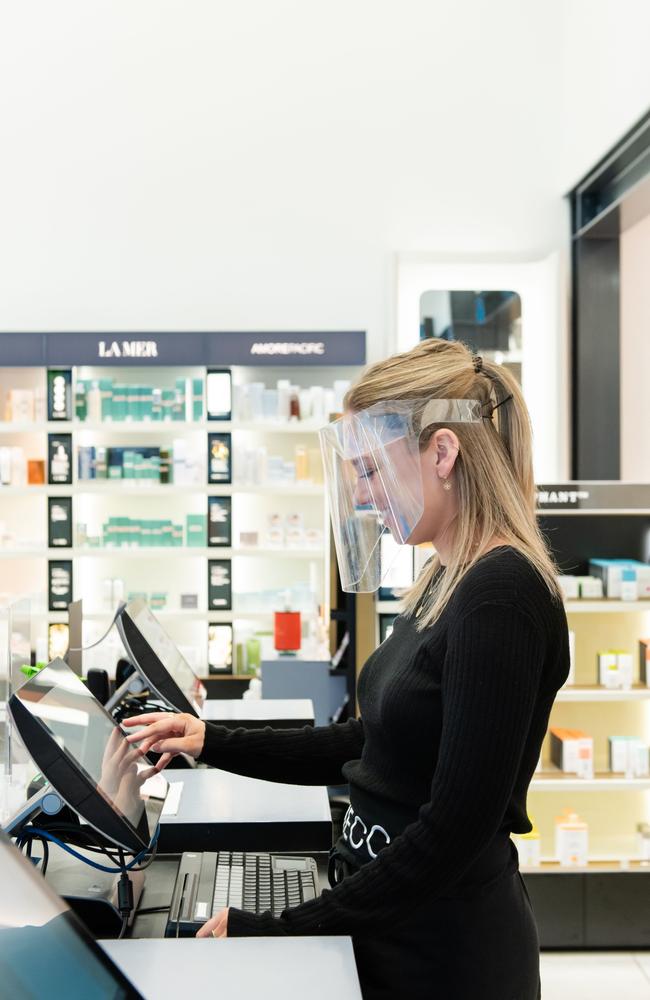
MORE NEWS
How travel will change for Aussies in 2021
Lockdown trend you need to know
Supermodel stuns in virtual runway
Ms Gilbert said virtual services – which were fastracked due to COVID-19 restrictions – would continue for “health reasons or simply convenience”. For 2021, she said there would be a trend towards do-it-yourself treatments which were reflected in lockdown sales trends.
Growing categories nationally were “new skin trends and devices … including LED masks and facial massage”, she said.
At beauty retailers nationwide, staff are wearing facial shields, customers undertake temperature checks on entry, with social distancing – including strict limits within retail spaces – and a “no-touch” policy for product testers the new reality for now and into 2021.
“All testers that can be disinfected are in use via a no-touch policy, with team members sanitising their hands, then sanitising the tester before hygienically dispensing it for the customer into a sample pot or onto a disposable applicator for the customer to try on the back of their sanitised hand,” Ms Gilbert said.
“Our team members are also wearing custom face shields when providing services and assisting customers with trialling products.”
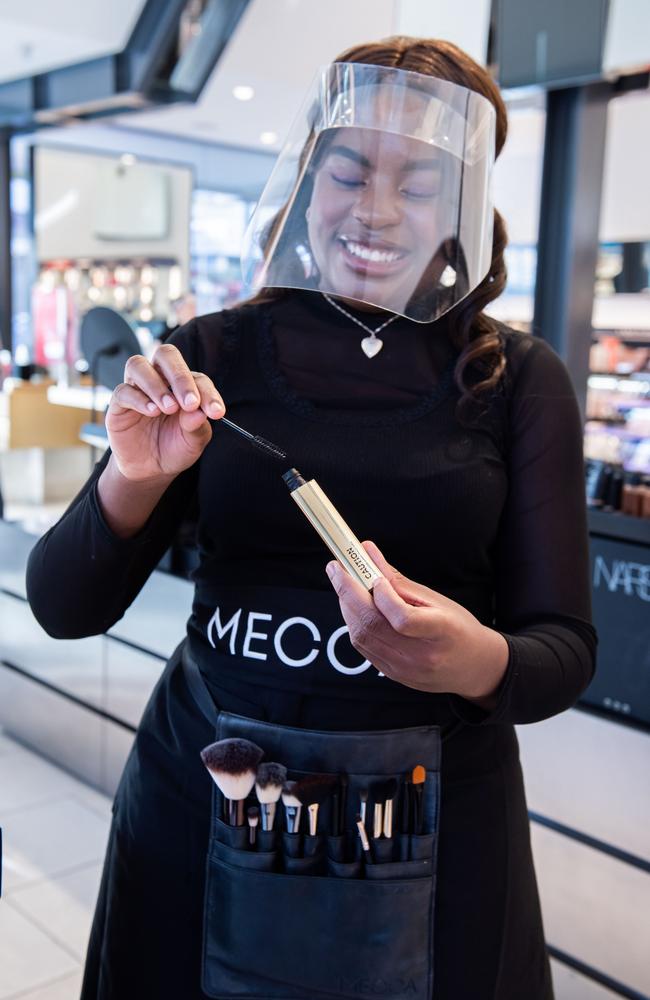
Another side effect of COVID-19 for the industry has been a dramatic rise in internet beauty sales.
At Melbourne-based online cosmetics retailer Adore Beauty, that has included a 170 per cent increase in sales of facial masks, skin tools (112 per cent) and exfoliators (62 per cent) between February and May.
Adore’s YouTube channel has had a 1421 per cent rise in viewers since March, while it launched a dedicated Stay At Home Essentials website category to cope with demand.
Department store Myer recorded a 310 per cent increase in beauty-related sales via the internet year on year, with a 430 per cent spike in skincare sales and 330 per cent jump in makeup.
For cosmetics brand Estee Lauder, Australian customers are shifting to online, are more engaged, are interacting with live chat more, and those who use the chat have the intention of buying, the company revealed to News Corp.
Estee Lauder noted a 210 per cent increase in web sales since March, according to data released to News Corp exclusively.
There has been a 115 per cent uptake in live web chat-style interactions with customers. And a 40 per cent jump in session duration, with a 220 per cent increase in revenue associated with live chat sessions.
‘FULL INFECTION CONTROL’
Australian skincare clinics said there had been “significant” pivot to do-it-yourself skin treatments, where staff do a virtual consultations via video call, and a facialist walks the customer through the treatment via Zoom or FaceTime.
Nationally, there has been a surge DIY facials carried out at home under virtual guidance from experts, Liberty Belle Rx chief executive Andrea Moss said.
And as for physical treatments conducted in clinics, Ms Moss said gloves, masks/PPE for clinicians conducting facials and other safety measures would remain in place indefinitely.
“Full infection control and safety measures have always been used at Liberty Belle Skin Centre – and this includes PPE like gloves and masks as appropriate,” Ms Moss said.
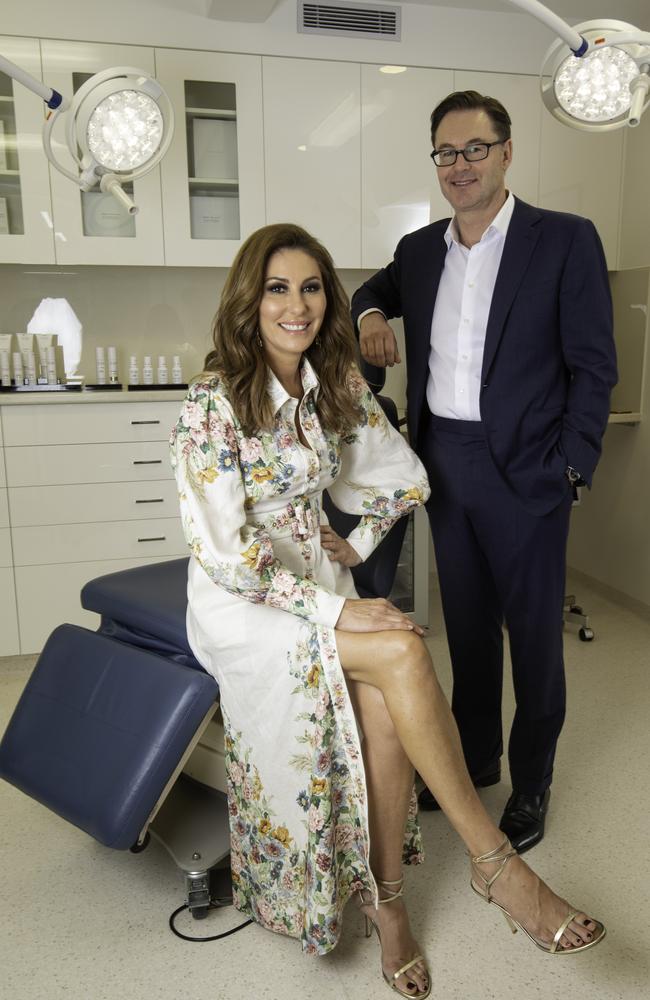
“Extra precautions including using PPE in all consultations will continue as long as this is required for the safety of our patients and staff.
“As a pandemic like this is unprecedented in modern times, no one can predict what and for how long this will be.”
Liberty Belle has also experienced a surge in sales of its at-home skincare line, Liberty Belle Rx, which includes DIY facial tools such as: Squad serum ($144), Superhero moisturiser ($138), and Bright Star face treatment ($168).
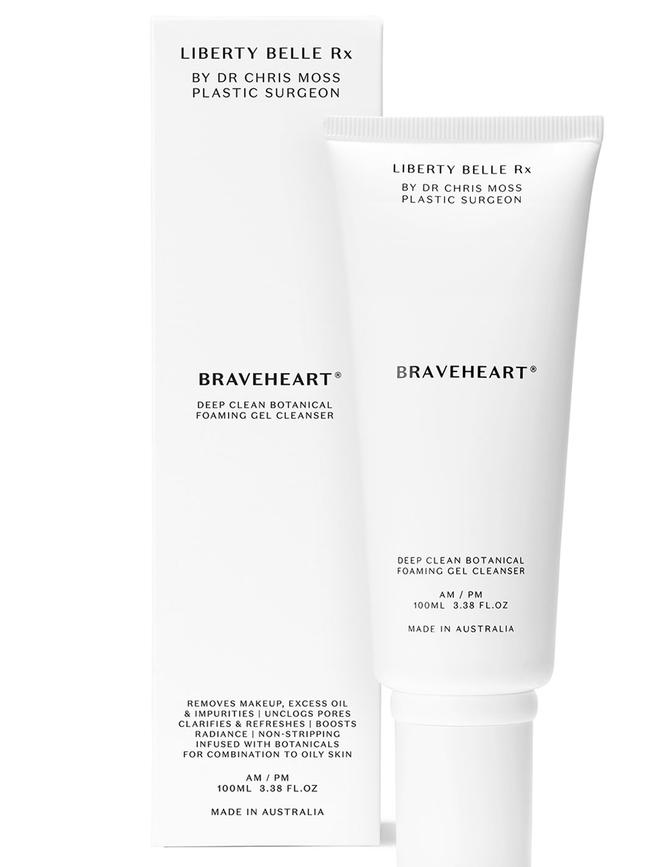
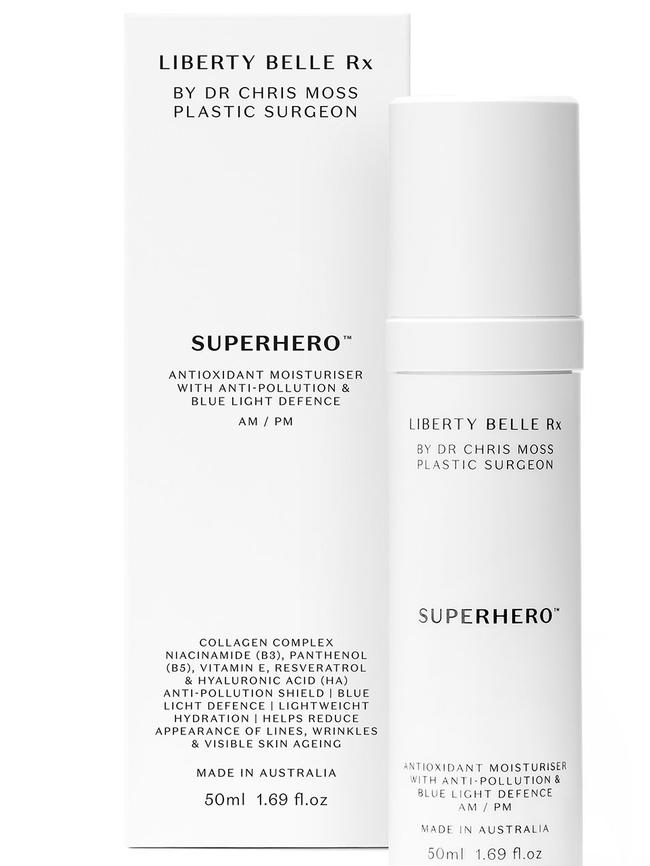
Celebrity facialist Melanie Grant said video consultations at her Melbourne, Sydney and Los Angeles salons had grown in popularity and were expected to continue over the next 12 months and beyond.
“This way, we can also prescribe home treatment kits, whereby clients are guided through treatments at home under the care of a senior therapist,” Ms Grant said.
“Virtual treatments and long distance consultancy has been incredibly popular. I think a lot of people are really craving human connection during isolation.
“We’ve also seen a huge shift towards self-care and a big part of this has been prioritising the care and maintenance of our skin.”
Grown Alchemist co-founder Jeremy Mujis said real-life treatment protocols had “quickly adapted to see staff wearing PPE and masks, and in some instances, the guest also wearing a mask and the treatment being performed around it”.
“We expect … the availability of hand sanitiser and temperature checks on the door to be a continuing part of the new norm,” he said.
Mr Mujis said he expected the number of treatments at physical locations to be intentionally reduced to allow additional cleaning measures between clients.
“While demand for appointments is strong as we come out of lockdowns and services are resuming, we are seeing a general decrease in the number of available appointments per day with the introduction of extended cleaning protocols required between appointments,” he said.
As for online sales, there had been a significant spike in at-home facial tools such as masks, facial oils and hydrating serums during lockdown periods – a trend he expected to see into 2021.
“We expect these trends will continue over the next 6-12 months,” he said.
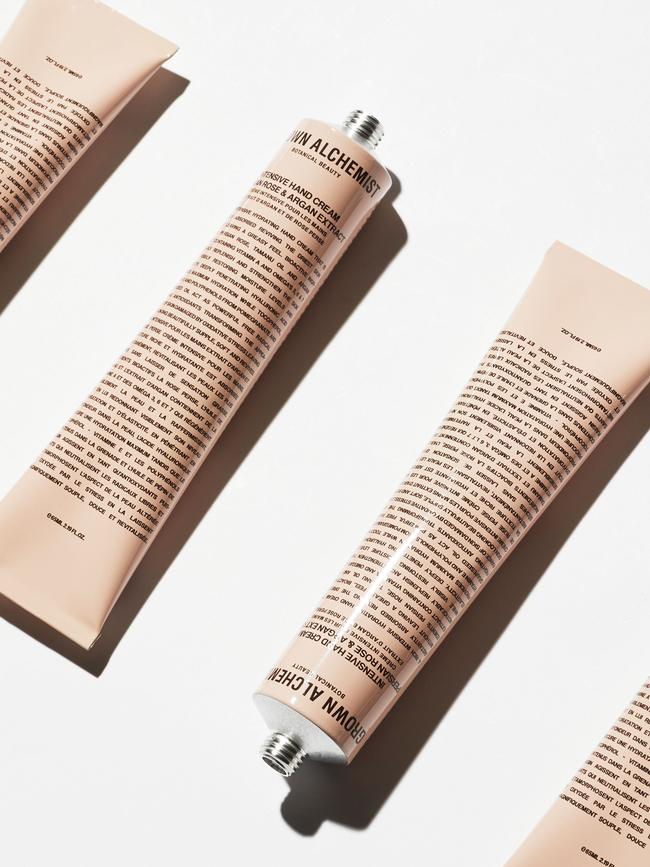
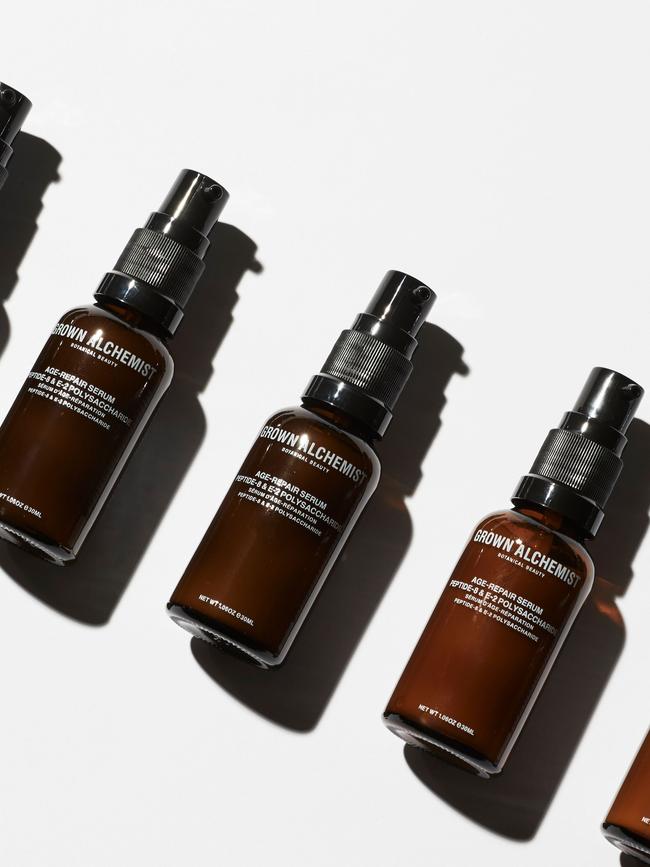
‘VERY SIMILAR TO 2020’
Hair cuts, colour, extensions and waxing will still be done in real life and the industry does not predict a move to from-home treatments in 2021.
There will, however, be an increase in COVID-safe compliance measures such as PPE and masks in hair salons, sanitisation point, and spacing out treatments to minimise time spent in the chair.
Oscar Oscar partner Nathan Armagnacq said he expected salons were “still going to look very, very similar to 2020” even in the next 12 months.
“We take temperature checks, any touch point is cleaned, we are updating their details because we need to be able to contact trace them,” he said, adding that clients are spaced out to adhere to social distancing rules.
“We have made it a condition of entry – no mask, no entry,” he said, of Oscar Oscar’s salons. “When we’re applying colour or cutting we ask the client to unhook one ear and hold it in place.”
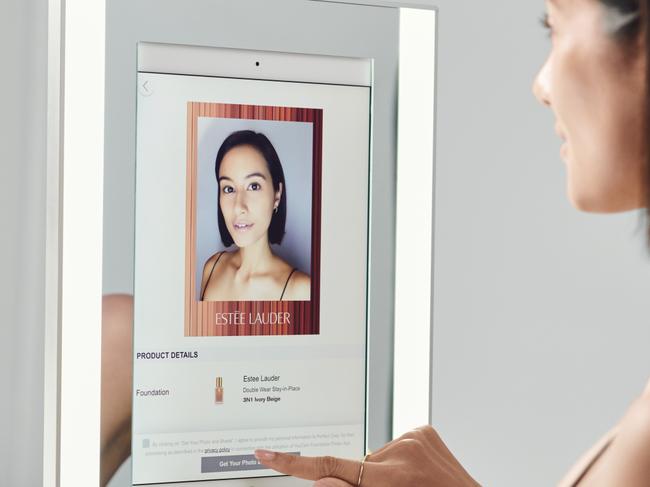
RETAIL
The retail industry in general has felt the full impact of COVID-19 and now many stores are in the fight of their lives to come out the other end.
Many stores have been forced to close their doors either temporarily or permanently, while others have had to completely overhaul the way they operate.
The Australian Retailers Association’s chief executive officer Paul Zahra said the huge transformation of the retail industry had “sped up change”.
“The shifts to digital and contactless shopping has now been accelerated by about a decade and it’s demonstrated retailers are resilient people,” he said.
“Shoppers will be using more of the mobile for shopping instore to navigate information, it’s all about convenience and contactless.”
Latest Australian Bureau of Statistics data showed in May online sales climbed by 13.6 per cent year on year.
Mr Zahra said as a result of COVID-19, “we’ve now got people who are shopping online that have never shopped online before”.
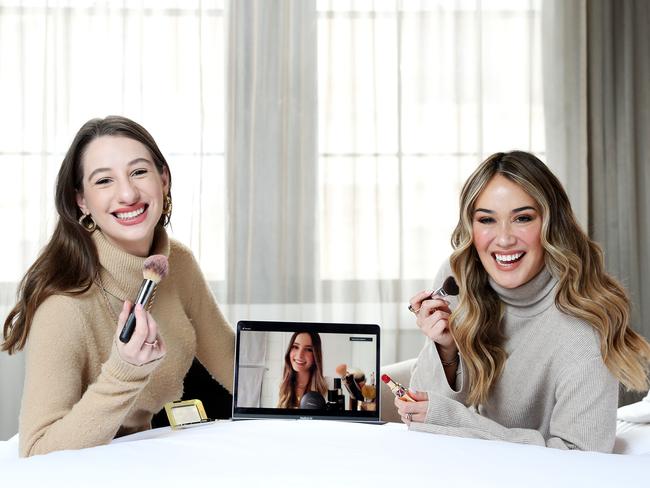
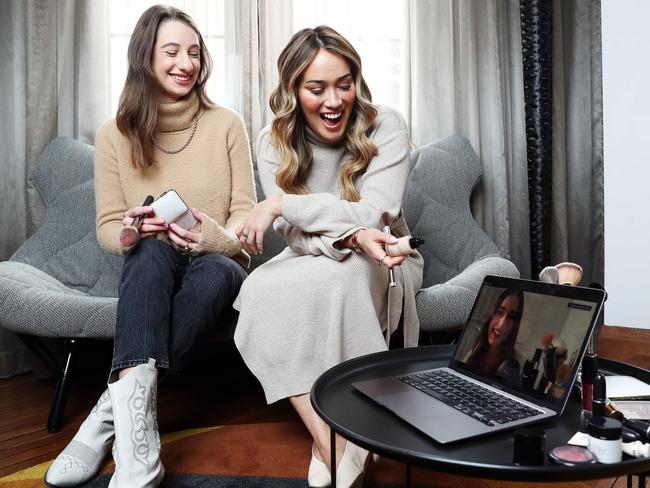
HANDLING ITEMS INSTORE
A significant change we should expect to see in 2021 is the ability to touch and test items instore, Mr Zahra said.
For example with make-up and perfume tests, single-use testers will become more prevalent in department stores and chemists.
Among these measures include single-dose technology, digital try-on technology, single-dose packaging and automated dispensing.
This would appear to communal products such as testers at cosmetic counters or scent strips for those wanting to try perfume before they buy.
SMARTSTORES
This involves retailers being more tech-savvy including the way shoppers can collect items from a story or pre-book the exact time they want to pre-book.
For instance, Dan Murphy’s rolled out direct-to-book service at its stores, reducing the need for customers to enter the store to collect their items.
These types of arrangements will become more prevalent, allowing shoppers to order the goods online and drive to the store to pick them up a time that’s convenient.
Woolworths also introduced a new Q-Tracker customer tool using real-time data to help shoppers plan before they shop and avoid queues.
VIRTUAL CHANGEROOMS
Some companies including Amazon and Toronto-based NextTech AR Solutions are one of the companies bringing try-on features to digital storefronts, as well as homewares giant Ikea.
The feature enables customers to try on clothes, eyewear, jewellery and other items to check for fit and style or see if items match the home.

BRICKS AND MORTAR
Retail magnate Gerry Harvey said there will always be a place for bricks and mortar stores and this won’t change.
“When people go and buy something, you buy a new dress you feel quite good and a bit of euphoria comes over you,” he said.
“Online is growing but it’s not going to take the place of bricks and mortar.”
PAYMENT/DIGITAL RECEIPTS
The surge in card payments is also expected to continue as people moving away from handling notes and coins for fears of the spread of disease.
Woolworths’ chief customer transformation officer Von Ingram said digital receipts would also be another shift for shoppers.
“As customers look for more contactless options we’re now offering digital receipts in the Woolworths rewards app,” she said.
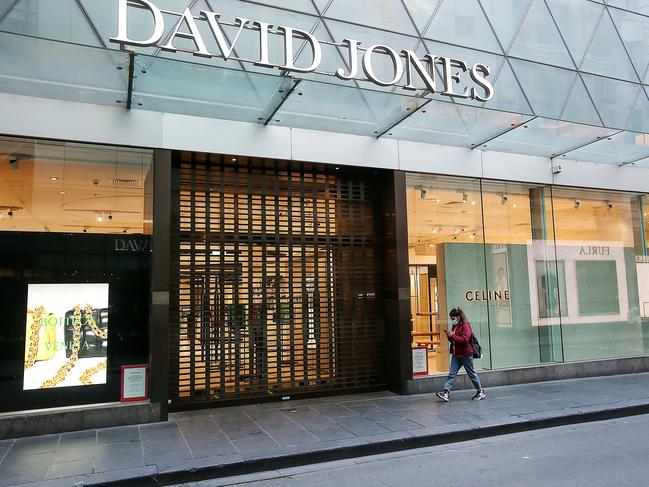
TECH
Online shopping delivered by drone, unprecedented internet speeds, and the return of smart glasses: futurists expect transformative tech to emerge in 2021 to meet very different times.
Australians can also expect less focus on smartphones next year and more on laptops, more gadgets to make homes smarter and more secure, and more online shopping than usual.
And, yes, experts say the constant video conferences are here to stay.
Global futurist Anders Sorman-Nilsson said new tech trends in 2021 will be designed to keep us safe and connected, responding to challenges posed by the coronavirus pandemic.
“What COVID-19 has done is compressed years of transformation into a single year, shifting consumer behaviour,” Mr Sorman-Nilsson said.
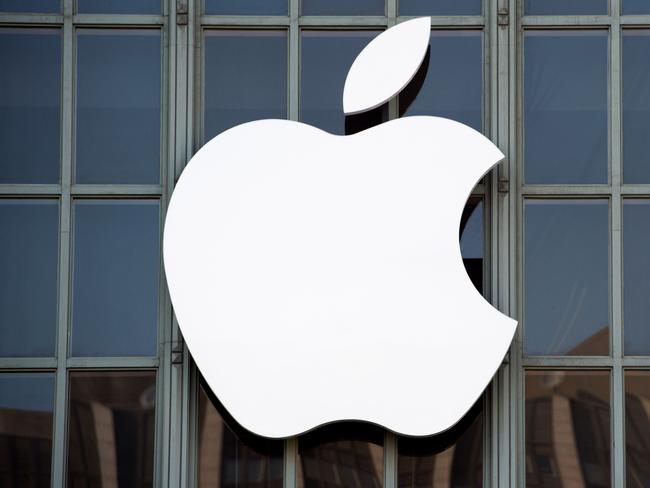
Online shopping would rise “to a new level” in 2021 as consumers striven to stay socially distant, he said, making drone deliveries a practical option.
“Drones can solve some traffic challenges. Drone delivery costs 70 per cent less than delivering the same things by van,” he said.
Augmented reality and virtual reality technology would also step up to entertain people at home and deliver new, safe experiences, Mr Sorman-Nilsson said.
The technology was recently demonstrated by Optus, which used its 5G network to show how consumers could virtually try on clothes while standing outside the shops that sold them.
Optus 5G head Harvey Wright said the AR application, which could show how a shirt, hat or even shoes looked on potential buyers, need not be theoretical when 5G coverage reached more Australians in 2021.
“The potential for augmented reality is a lot more obvious to consumers now, having been almost forced to look at these technologies through lockdowns,” Mr Wright said.
“We know these technologies will be a key use case for 5G.”
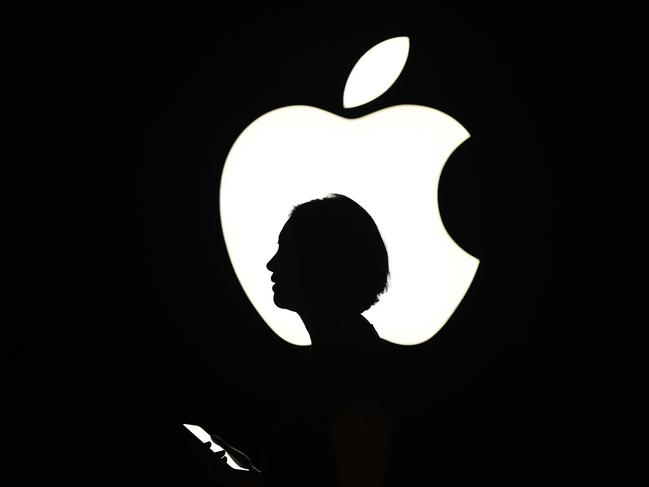
Apple could also help the reality-bending technology “come of age in the next 12 months,” Telsyte managing director Foad Fadaghi said, as it was strongly tipped to launch smart glasses as soon as May.
The futuristic spectacles could show wearers messages, alerts, street navigation, and games without tipping off bystanders.
Aussies should also expect supercharged download speeds over 5G next year, Mr Fadaghi said, with the introduction of millimetre wave (mmWave) technology.

It could deliver download speeds as fast as 1.8 gigabits per second — faster than fastest of NBN connections — and will become available after a spectrum auction early next year.
NBN connections will get a speed boost in 2021 too, with NBN Co promising to upgrade speeds to millions of HFC homes to 250 megabits per second by June.
And futurist Steve Sammartino said the additional speed would come in handy for home offices or — as we’ll see more of in 2021 — home studios.
“Going to cubicle farms and working in an office — those days are gone,” he said. “The genie is out of the bottle now and it’s not going to go back in.”
Architects were already “recalibrating plans for homes and houses” to feature larger studies that would accommodate advanced videoconferencing facilities for virtual meetings, calls and presentations, Mr Sammartino said.
Three in five people were participating in video calls at least once a day last month, according to Creative Strategies, and Mr Sammartino said their rise was unlikely to slow down.
Australians were also expected to buy more laptop and desktop computers, after Gartner saw shipments jump 2.8 per cent during the first three months of the pandemic, and Mr Sorman-Nilsson said he expected to see a lot more smart home gadgets to automate tasks and keep an eye on things.
